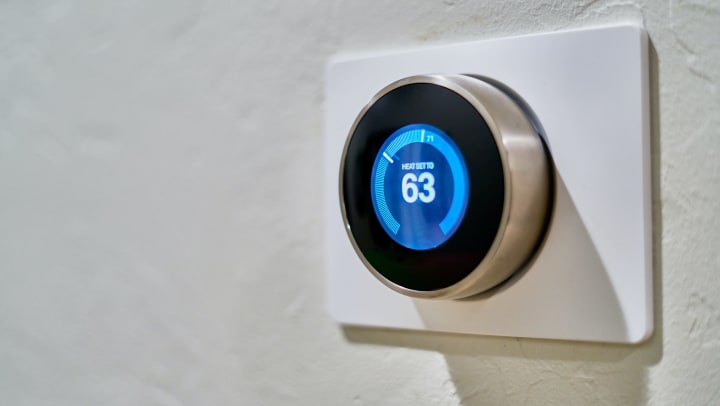Do I need climate-controlled storage? It’s a question people always ask when they’re shopping for storage units, and with good reason. The fact of the matter is that most storage units are not climate-controlled due to low demand, as well as the increased costs of building and maintaining climate-controlled facilities. Many storage companies don’t offer climate-controlled units, but BuxBear does!
So, do you need climate-controlled storage? It depends on what you’re using your storage unit for. In this article, we’ll run through common cases where climate control is helpful and some of the drawbacks of climate-controlled storage units.
Common uses for climate-controlled storage
As we’ve said, one of the most common questions people considering renting a storage unit ask is, “do I need climate-controlled storage?” There are many situations where a climate-controlled storage unit is a great choice. The primary consideration is what you’re storing and how those items are affected by environmental changes:
Climate control for wood, paper, and plastic items
Many collectors use storage units, as do small business owners who store stock until it’s ready to ship. For some of these items, temperature changes can spell disaster. Carpenters, for example, might find that temperature changes cause their creations to warp and crack. Likewise, valuable antiques can get ruined through temperature-induced expansion and contraction. Vinyl record collectors know that even relatively small temperature changes over time can warp records, destroying them. The same applies to CDs and DVDs. Comics and books can yellow and grow mold or mildew, and their spines can become damaged.
Climate control for cloth items
Clothing items aren’t safe from environmental factors, either. With fabric, the primary concern is humidity. Unchecked humidity creates the perfect environment for mold and mildew. Temperature changes can also fade the color of cloth items over time.
Climate control for photos, certificates, and important files
There are all sorts of valuable paper items people store that need protection. For example, family photo albums are highly susceptible to fading and yellowing, especially older photos. Many small businesses use storage units to store archives of files and documents, which are
critically important—file boxes succumbing to mold and mildew are not what you want.
Don’t discount your own comfort!
Some storage unit renters regularly spend time in their units. We’ve seen crafters who use them as makeshift workshops, business owners who spend time digging through filing cabinets, and collectors who spend time organizing their belongings. Some gearheads with motorcycles, cars, or RVs end up working on their vehicles in the unit. Storage unit renters have plenty of reasons to hang out in their space. In those cases, having a temperature-controlled unit makes a huge difference. If your unit is miserably hot, you won’t want to spend time in it, and for people in those situations, paying a little extra money each month may be worth it.
How does climate control affect the price?
If you’re asking yourself, “Do I need climate-controlled storage?” you’re probably wondering how climate control affects rental prices. The primary reason not to choose a climate-controlled storage unit is that they’re more expensive. It’s widely claimed that climate-controlled storage units are 20-50% more costly to rent than a standard unit.
In some instances, even the presence of climate-controlled units at a storage facility can raise the price of all units on the property, regardless of whether they have climate control. That’s because the rental company’s baseline costs are higher due to increased utility expenses.
Are there any other drawbacks to renting a climate-controlled unit?
Climate-controlled units are often in indoor and/or multi-floor storage facilities instead of drive-up units with garage-style doors. For some people, that’s unimportant or even preferred, but many renters prefer drive-up access.
Additionally, if you have to go up an elevator or through narrower doors to access your unit, that will limit what kind of items you can store since bulkier objects (like heavy furniture) won’t fit.
Finally, indoor facilities are more likely to have limited access hours than a lot you can drive onto with an access code, card, or key.
What’s the best place to find climate-controlled storage units?
If you’re near a BuxBear location, start your search there. We’ve researched to provide the best amenities, competitive pricing, and old-fashioned customer service on the market. Our climate-controlled storage units come with best-in-class security features, and all our facilities are conveniently located near major intersections, highways, and gas stations. BuxBear Storage facilities focus on future-proofing and thoughtful design, and we believe you’ll notice the difference the minute you visit. Don’t take our word for it—visit your local BuxBear Storage location and check it out for yourself, or give us a call, and one of our helpful staff will help you find the unit that works best for you.
If you’re not near a BuxBear, check out the websites of other local storage companies and look for those that advertise climate-controlled units. Remember, they’re not present by default, so don’t assume any given storage company will offer them. And to reiterate, more often than not, you’ll have an easier time finding climate-controlled units at indoor facilities, especially multi-floor facilities.
“Do I need climate-controlled storage?” The final word
Most people don’t need climate-controlled storage, but it shouldn’t cost an arm and a leg for those who do. What’s more, you should be able to get the best use out of a high-quality storage unit for the price. No matter what changes in the market, getting more bang for your buck never goes out of style. That’s our philosophy at BuxBear Storage, and it’s what we provide to our clients daily. So if you’ve got fragile items that need protection from the elements, don’t hesitate to check out our top-of-the-line climate-controlled units today.


